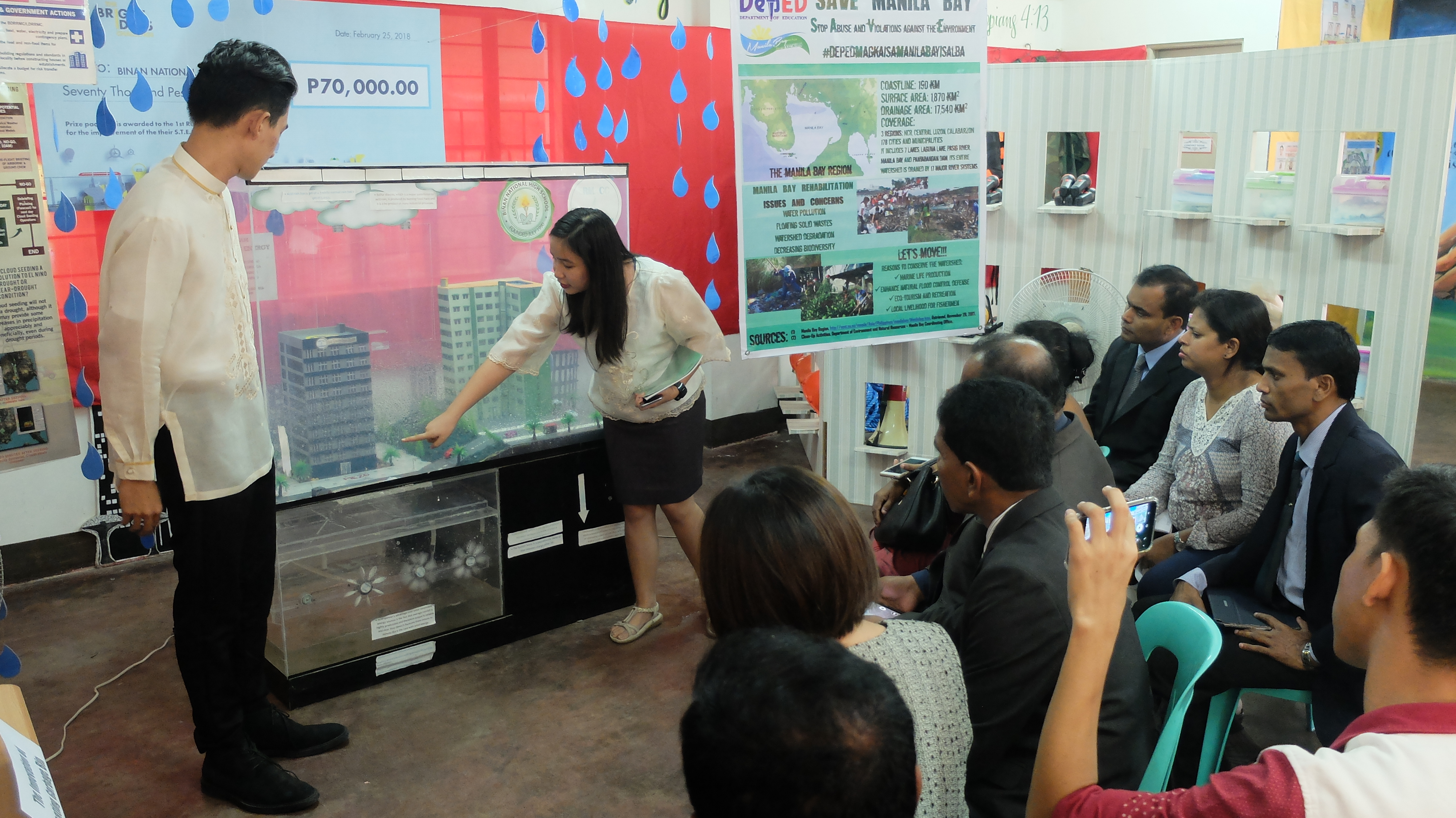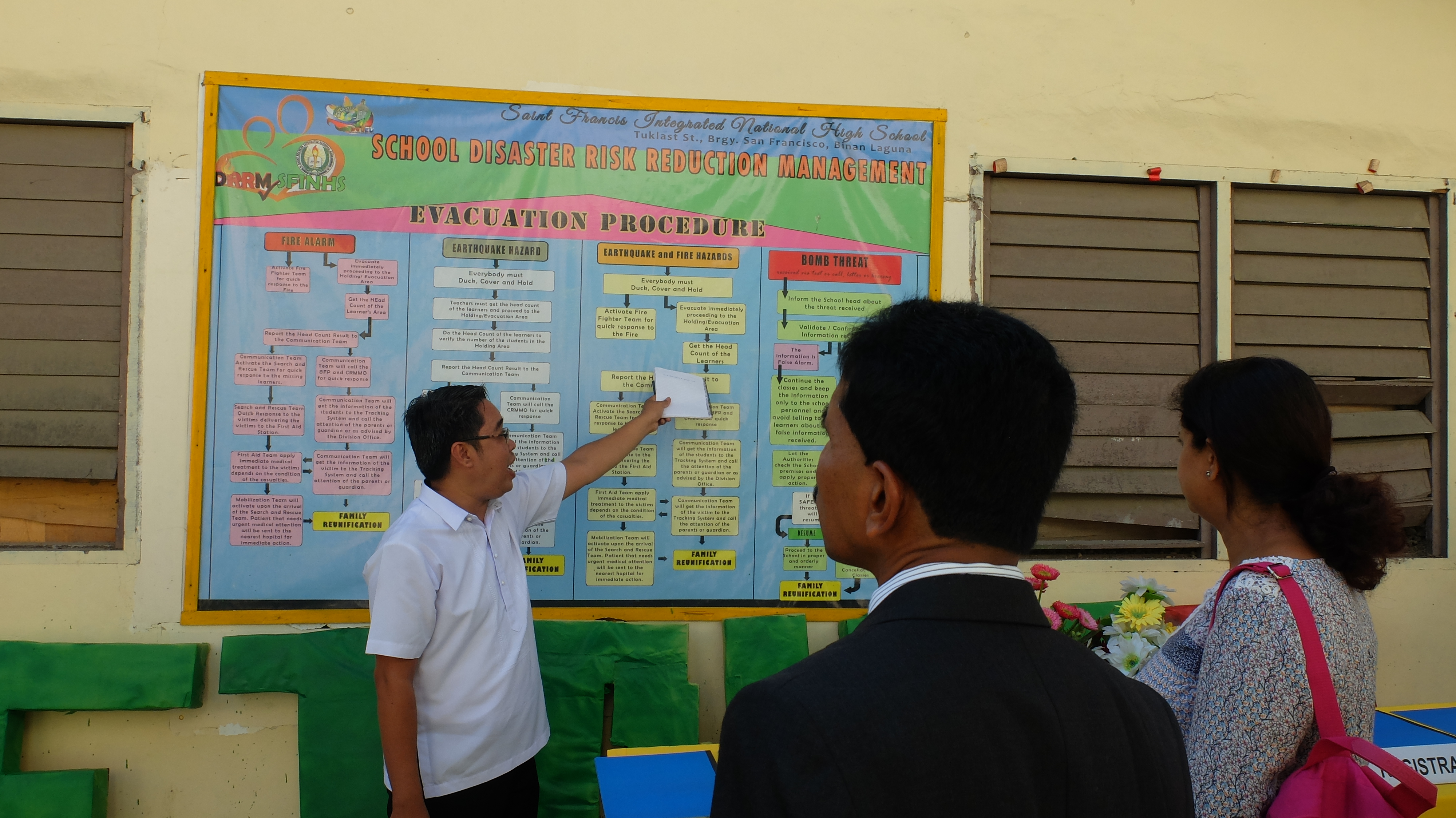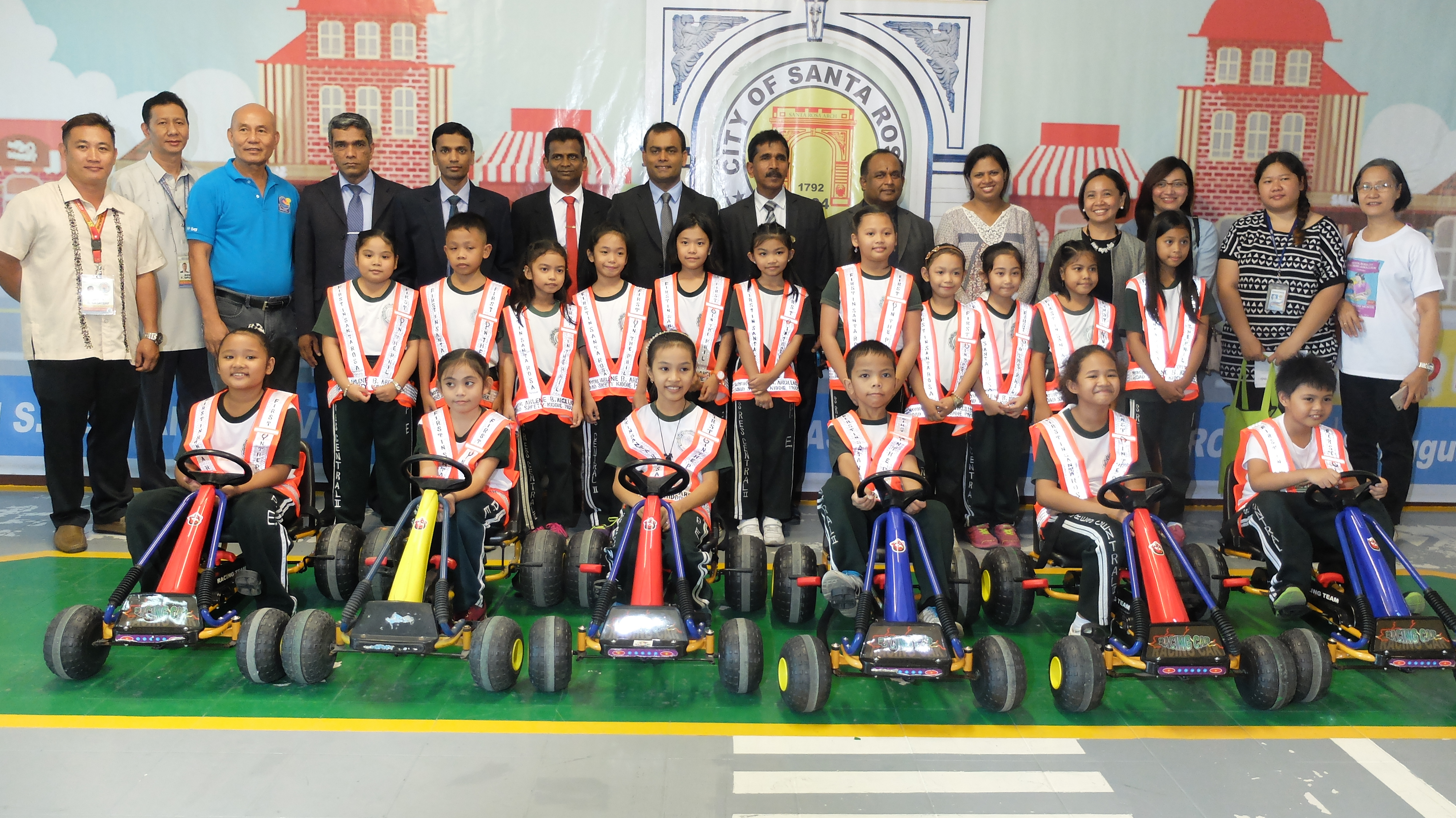PASIG CITY, November 17, 2018 – To help promote school-based disaster risk reduction and management (DRRM), the Department of Education (DepEd) spearheaded study visits in select schools for Sri Lanka’s Ministry of Education delegation from October 22 to 23.
Organized by the DepEd’s Disaster Risk Reduction and Management Service (DRRMS), the study visits imparted the value of mainstreaming the Comprehensive School Safety (CSS) Framework which aims to strengthen the pillars of safe learning facilities, school disaster management, and risk reduction and resilience education for schools.
DepEd Order No. 37, series of 2015, or the Comprehensive DRRM in Basic Education Framework, institutionalized the core elements of CSS into all the resilience interventions of the public education sector.
The study visits were held in five schools – De Castro Elementary School in Pasig City; Saint Francis Integrated National High School and Biñan Integrated National High School in Biñan City, Laguna; and Caingin Elementary School and Southville IV National High School in Sta. Rosa, Laguna – where students and school DRRM coordinators shared promising practices in making their communities and their environment safer in the face of flooding, earthquakes, fires, and other hazards.
The practices showcased include the student-led climate change and DRR innovations, use of early warning devices and emergency protocols, integration of DRR into lesson plans, setting-up of DRR corners in classrooms, organization of school-level DRRM teams, and sustainable urban gardening, among others.
Moreover, engaging communities and local government units in school safety was also demonstrated through the visits to the Pasig City Command Center and Rescue Emergency Training Center, and the Sta. Rosa Road Safety Kiddie Park.
Mr. Saukenda Mudiyanselage Premasiri Bandara, Assistant Director for Education in Uva Province of Sri Lanka, expressed his admiration of the DRRM practices in the country: “The standard DRRM system is impressive in the Philippines, and it is important for Sri Lanka to have the same.”
Meanwhile, DepEd-DRRMS Director Ronilda Co underscored the importance of all DRRM officers, coordinators, and personnel in ensuring the sound implementation of various disaster resiliency efforts in schools and in communities.
Co also acknowledged the capabilities of learners in improving and crafting disaster resiliency efforts in schools or at their own homes, “The children are vulnerable, but they are equally capable; they can create and innovate to build or enhance their resilience.”
The study visit is part of the assistance provided by the Asian Disaster Preparedness Center (ADPC) and the United Nations International Children’s Emergency Fund (UNICEF) for the development of Sri Lanka’s CSS program.
END





